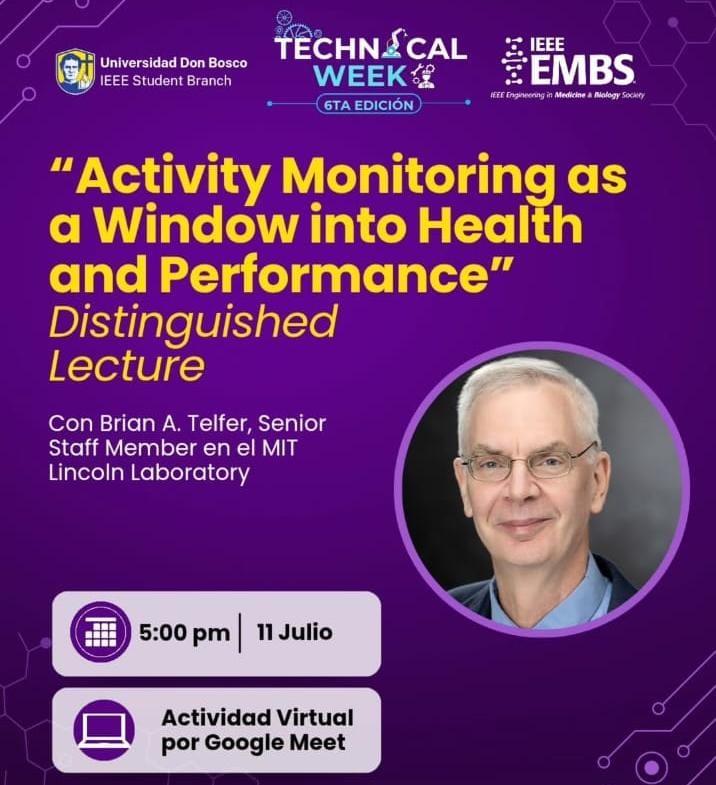Activity monitoring as a window into health and perfomance.
During the past 15 years, consumer wearable monitors have progressed rapidly from counting steps to a
host of proprietary activity and sleep metrics. The next generation of monitoring capability will provide
much more health-related, actionable information. In this talk, Brian will give an overview of these
upcoming technologies and the underlying biosignal processing techniques for analyzing activity and
sleep, including several examples from MIT Lincoln Laboratory: 1) early detection of Parkinson’s Disease
and other movement disorders, 2) risk stratification based on levels of visceral adipose tissue, an
important health biomarker, 3) presymptomatic detection of infectious disease, 4) quantitative
estimation of fatigue to optimize scheduling of shift workers, 5) early detection of exertional heat stroke.
The first two applications are based on analyzing publicly available accelerometry datasets: the U.S.
National Health and Nutrition Examination Survey (NHANES) with about 8,000 subjects and the U.K.
Biobank with 100,000 subjects. Biosignal processing algorithms that have been considered range from
straightforward baselines of steps and cadence and sleep fragmentation, to correlation structure
algorithms adopted from the radar signal processing community, to deep learning. All of these case
studies involve close collaborations between engineers and senior physiologists, clinicians and end users;
Brian will share experience on what is required for a high-performing engineering and medical team.
Brian will also offer perspectives on wearable sensing technology transfer, progressing from idea to
impact, and innovating in the national and global interest, based on his career working for a U.S.
National Laboratory.
Date and Time
Location
Hosts
Registration
-
 Add Event to Calendar
Add Event to Calendar
- Contact Event Host
-
- Co-sponsored by Activity monitoring as a window into health and perfomance.
Speakers
PhD.Bryan
Activity monitoring as a window into health and perfomance.
Dr. Brian Telfer is a Senior Staff Member in the Human Health and Performance Systems Group at MIT Lincoln Laboratory, a National Laboratory for the U.S. Government that serves as a bridge between academia and industry. In this role, he provides technical leadership in applications relating to human performance and prehospital medical care. His expertise spans biosignal and image processing, medical ultrasound, radar signal processing, machine learning and artificial intelligence, system analysis, rapid prototyping and technology transition. He has a special passion for transitioning bioengineering technology that has been restricted to hospitals and research laboratories into field and home environments, fitting with the “hospital-at-home” theme.
Earlier in his career at MIT Lincoln Laboratory, Dr. Telfer was Assistant Group Leader for radar signal processing applications. Before that, Dr. Telfer worked at the Naval Surface Warfare Center, supported by an Office of Naval Research Young Navy Scientist Award. He holds a BS degree from Virginia Tech and MS and PhD degrees from Carnegie Mellon, all in electrical engineering. Dr. Telfer received MIT Lincoln Laboratory’s top Technical Excellence Award (2022) and the Best Invention Award (2021). He is active in the IEEE Engineering in Medicine and Biology and Signal Processing Societies, including chairing conference tracks and workshops. He chairs MIT Lincoln Laboratory’s Biomedical internal funding panel. In addition to a strong record of technology transitions to industry, Telfer has 7 patents and applications, 5 book chapters, more than 80 journal and conference papers, and 24 Government reports shared with senior leaders.

